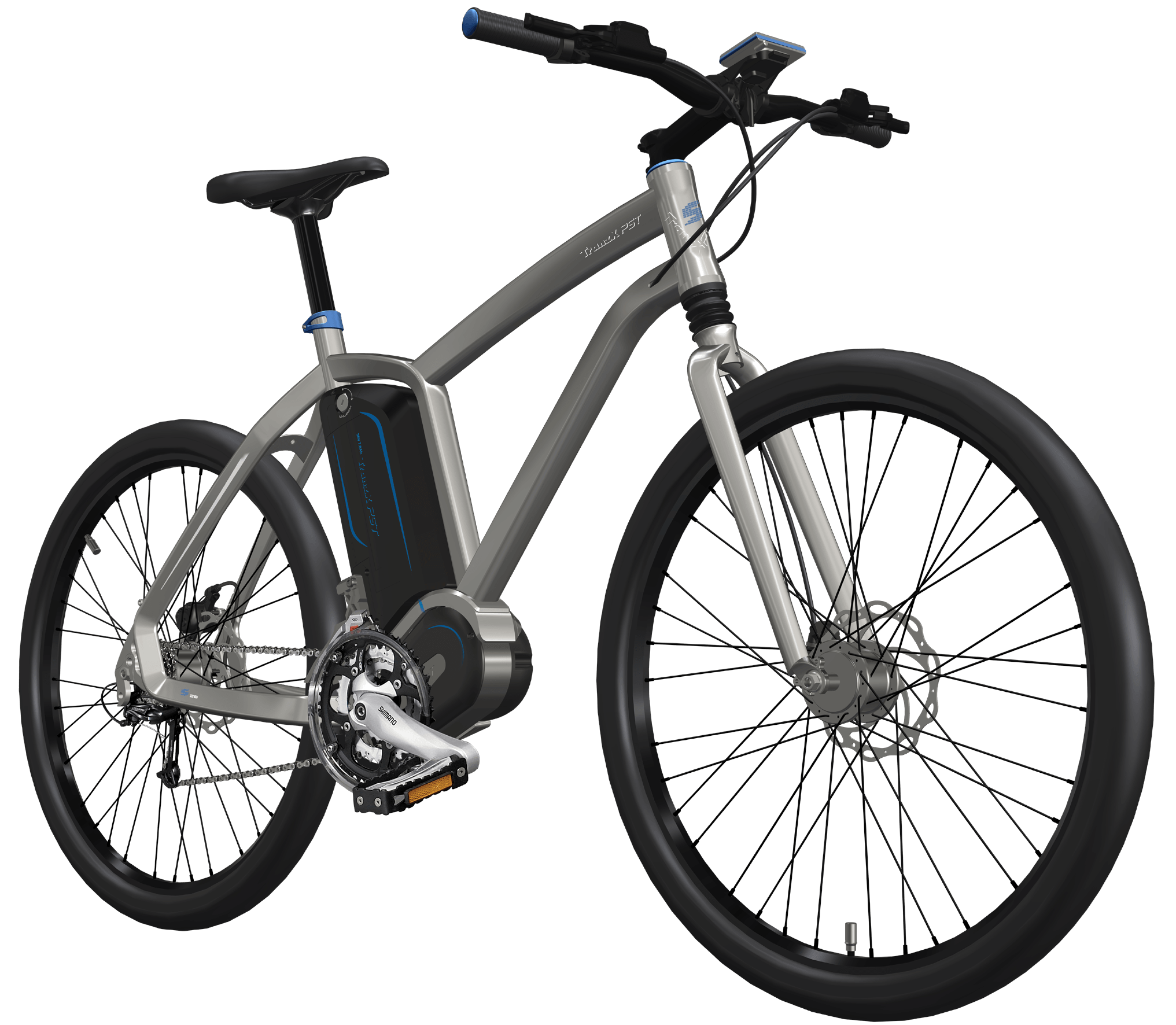The best is when the grocery stores are so close that you don’t need a car or a train. Japan does it right. You can always walk to at least one grocery store.
True enough for urban areas.
There’s also a lot of more rural areas in Japan where the only thing in walking distance from a house is a bus stop, and it might be a bit of a long walk.
I’m sure there are more remote places, but I haven’t been to those places.
I think the important part is that the Japan residents know it is possible once the town or city grows vs here in North America where people cannot fanthom the idea of not having a car (or in the US and Canada 1 car per person on the home).
I am privileged since I have been able to work from home recently, but it is so clear that you don’t need a car if non-work things were closer (better zoning and design roads for people instead of cars). Once you put 1k miles per year on your car instead of 10-20k and your quality of life is much higher due to no stress from having to commute it starts to radicalize you against into the dumb shit we do in the name of growth and profit (not violently but still makes you feel cheated out of a better life).
It’s not only Japan, I dare to say most countries have grocery stores within walkable distances.
It sure was great. We don’t have that at all in the US.
Yes, it’s called a tram. It’s how I get to the shops, city centre, etc.
I do this with light rail. Takes 6 minutes with slow walking included. It’s pleasant.
Especially in the winter. I live in Norway, so if I use a car I wait for the engine to warm up before driving. (It’s better for the engine.) This and removal of ice and snow easily takes more than 6 minutes. I’m really glad I don’t have a car.
Most of the world is not like Norway and having a car is a necessity not a desire
I completely understand that owning a car can be necessary for someone, but since I’m lucky enough to have access to good public transit a car just doesn’t make any sense for me.
It’s MANY times as expensive, the car requires maintenance/repair and driving requires me to be focused and well rested.
Even with zero sleep, a headache, icy roads, a beer in my stomach and lots of stress, I can safely get where I need to go and I don’t even have to think about parking when I get there. I can even listen to music or a podcast on really low volume with closed eyes. I hope that more people get access to good public transit.
For a society in the long run public transit is also cheaper per passenger than cars. The difference in cost efficiency grows the more densely populated an area is. Statistically most people on Lemmy live in a more densely populated area than me, so you can probably demand this from your government. Y’all would end up saving money.
If you have to take a train to the grocery, that’s a failure in local planning and a business opportunity. That said, not every store has everything and I, too, have taken a train to the grocery store for fancier/rarer things.
In some parts of rural Japan, we also have a grocery truck carrying staples and things you requested the last time they came from the actual store. This is a huge lifeline to some rural elderly people, but I don’t see why it couldn’t be more broadly applied in other areas.
Holy based. Very cool
We just have food delivery. You order and it arrives the next day, no delivery fee. Of course the sales usually aren’t as good as in typical stores but the general prices are almost identical. They deliver in cute little electric vehicles.
That’s cool. Though less bog in terms of infrastructure.
If the frequency is good enough, this isn’t a problem.
The best case scenario is as you mentionned : a grocery that you can walk easily, that has everything you need.
But having a light rail with high frequency makes it so that you can reach more area easily. And it also means that less dense part of the city still be serviced decently.
I had two grocery stores in 5 minute walking distance. I had one store with more stuff, think also basic electronics, kitchenware, home appliances etc, in one station with the inner city train that was a 5 minute walk from my flat.
For years i did my groceries taking the train and i fail to see the problem. Just having to walk to the parking lot, get my car, drive to the store i can reach by train, then park there would have taken me twice as long even without traffic.
In inner cities cars are a liability for everyone including their driver.
deleted by creator
You likely wouldn’t actually want that, as the way it works on star trek at least is to effectively kill you (by recording all your molecules etc then ripping you apart), move your molecules to the new place and then reassemble you.
There’s no real way to do ‘instant’ teleportation like you suggest either as it most likely breaks the laws of physics, things have to move to get places, best you could probably do is very fast teleportation.
You teleport the groceries, not the person to the store. That would be silly
At that point though, I feel like food etc could have just been grown or made locally. I hope that capitalism and thus the need for stores doesn’t exist if such advanced technology does. Heck, it might even lead to replicators if matter is already being played around with
I’d settle for speed of light tbh
Yeah, though this is difficult for anything with a significant mount of mass beyond that of a photon. The closest scientists and engineers etc have currently got to anything close to the possibility of going very very very fast is the Alcubierre drive. However, that’s still very speculative and probably nowhere close to being built.
The most impressive tech ioo that they can come up with for space travel and exists at the moment is Ion thrusters.
Yeah so I guess I’d always imagined that the closest you can really get given the laws of physics to instant travel would be disintegration+information transfer+matter synthesis. But matter synthesis is probably ruled out by the amount of energy required to do anything, and the complexity of correct assembly. Still, fun to think about.
walking is an option
If we ever figure out teleportation, it will be expensive. Of course, there’s a free tier where you get teleported into a void where you will have to watch ads for 20 minutes before you get sent to your destination. Complete with regular reminders that you can simply upgrade your plan to get out of teleportation purgatory immediately.
It’s actually called zoning reform. Bring back neighborhood grocery stores you can walk to. Before I experienced it, I never thought about how convenient it is to walk less than 5 minutes to a grocery store almost every day and do little grocery trips instead of bit multi-bag struggles.
Would probably help with remembering reusable bags too. Instead of driving there and being like ‘oh no!’ you’re walking, and would realize you’re not carrying them with you.
In the US you’d be arrested for unlawful walking in a car only area, or something.
I’m fine going to the supermarket for a medium shop every week or two but being able to walk to get milk for my breakfast (especially if I only realised I’d ran out in the morning!) was so nice.
Now I don’t live in town any more, it’s an 11-mile drive to the nearest shop so it’s more like a once a month shopping trip. Fresh fruit and veg? What’s that?
Bring back neighborhood grocery stores you can walk to.
This is actually probably more a federal antitrust/competition law thing than a local zoning thing. Otherwise it wouldn’t have happened nationwide. I found this article to be pretty persuasive:
Food deserts are not an inevitable consequence of poverty or low population density, and they didn’t materialize around the country for no reason. Something happened. That something was a specific federal policy change in the 1980s. It was supposed to reward the biggest retail chains for their efficiency. Instead, it devastated poor and rural communities by pushing out grocery stores and inflating the cost of food. Food deserts will not go away until that mistake is reversed.
. . .
Congress responded in 1936 by passing the Robinson-Patman Act. The law essentially bans price discrimination, making it illegal for suppliers to offer preferential deals and for retailers to demand them. It does, however, allow businesses to pass along legitimate savings. If it truly costs less to sell a product by the truckload rather than by the case, for example, then suppliers can adjust their prices accordingly—just so long as every retailer who buys by the truckload gets the same discount.
. . .
During the decades when Robinson-Patman was enforced—part of the broader mid-century regime of vigorous antitrust—the grocery sector was highly competitive, with a wide range of stores vying for shoppers and a roughly equal balance of chains and independents. In 1954, the eight largest supermarket chains captured 25 percent of grocery sales. That statistic was virtually identical in 1982, although the specific companies on top had changed. As they had for decades, Americans in the early 1980s did more than half their grocery shopping at independent stores, including both single-location businesses and small, locally owned chains. Local grocers thrived alongside large, publicly traded companies such as Kroger and Safeway.
With discriminatory pricing outlawed, competition shifted onto other, healthier fronts. National chains scrambled to keep up with independents’ innovations, which included the first modern self-service supermarkets, and later, automatic doors, shopping carts, and loyalty programs. Meanwhile, independents worked to match the chains’ efficiency by forming wholesale cooperatives, which allowed them to buy goods in bulk and operate distribution systems on par with those of Kroger and A&P. A 1965 federal study that tracked grocery prices across multiple cities for a year found that large independent grocers were less than 1 percent more expensive than the big chains. The Robinson-Patman Act, in short, appears to have worked as intended throughout the mid-20th century.
Then it was abandoned. In the 1980s, convinced that tough antitrust enforcement was holding back American business, the Reagan administration set about dismantling it. The Robinson-Patman Act remained on the books, but the new regime saw it as an economically illiterate handout to inefficient small businesses. And so the government simply stopped enforcing it.
That move tipped the retail market in favor of the largest chains, who could once again wield their leverage over suppliers, just as A&P had done in the 1930s. Walmart was the first to fully grasp the implications of the new legal terrain. . . . Kroger, Safeway, and other supermarket chains followed suit. . . . Then, in the 1990s, they embarked on a merger spree. In just two years, Safeway acquired Vons and Dominick’s, while Fred Meyer absorbed Ralphs, Smith’s, and Quality Food Centers, before being swallowed by Kroger. The suspension of the Robinson-Patman Act had created an imperative to scale up.
A massive die-off of independent retailers followed. Squeezed by the big chains, suppliers were forced to offset their losses by raising prices for smaller retailers, creating a “waterbed effect” that amplified the disparity. Price discrimination spread beyond groceries, hobbling bookstores, pharmacies, and many other local businesses. From 1982 to 2017, the market share of independent retailers shrank from 53 percent to 22 percent.
The whole thing is worth reading.
Wow, one more thing to thank Reagan for that I was unaware of. Thank you for the link.
Another way that Reagan really shit the bed, huh
It sounds like he knew what he was doing, and it worked as intended. “Holding back American businesses” indeed.
Genuinely high quality post.
And yet another Reagan roast.
Thanks for sharing the article! It was very informative. I’m definitely going to remember it as the Robert pattinson law though.
It’s definitely both.
If you can’t have smaller grocery stores in neighborhoods due to zoning laws, what will be left is bigger stores which are going to be generally operated by large corporations.
That would only explain the phenomenon in urban areas that actually have zoning. Rural areas are suffering from the same thing, but don’t have zoning restrictions, so obviously that points to another cause.
WE ONCE HAD STREETCARS LOOK WHAT THEY TOOK FROM US
Still my favourite form of transport
the virgin bus route weeps and gnashes at the feet of CHAD STREETCAR
The Ford Motor Company decided that streetcars weren’t a proper mean of transportation, both for the US people and for the Ford Motor Company shareholders.
What if trains weren’t slow? 🤔
Wdym? In what clown world are trains slow?
The US
"Oh no! Trust me. Free market capitalism is gonna bring us so much innovation! "
- brings you broken infrastructure
- slow trains
If I wanted to take the train from my city to NYC, I’d end up spending about as much as a flight and I’d be on the trip for about 34 hours.
Freedom! Prestige!
THE LAAAAAAAND OF THE FREEEEEEE! 🇺🇸🦅🛻🔫
They are slower than driving except in peak traffic. Caltrain san Francisco to san Jose is about 2x driving time, and on neither end does the train get you into real downtown. San Jose is close but still a 15 minute walk before you get to anything interesting. Francisco is in a relatively shady area near a stadium, also 15 mins from market.
If you don’t have to park, getting to the airport by transit involves switching from Caltrain to BART at a random suburb so as an example San Jose to SFO is 30 mins by car, 1:30 by train. Note the tracks for the Caltrain and Bart are parallel here.
Ah, American trains. Outside of the USA and Canada, trains are fast.
If you mean to say “trains with high average speeds have high average speeds” I’ll agree, but even in countries trying to get faster average speeds it’s still relatively new outside of Japan.
There’s also cost to consider. You can get a fast train Paris to Berlin and it’s 4 hours faster than driving, but costs more than 4x to transport 1 passenger vs a car which can bring 5. The main route is slow, matching the speed of a car. (If you had a family, would you pay 60 euros to drive, 520 euros to train at car speeds, or 932 euros to train faster?)
However the “fast” train is still only reaching normal highway speeds (120-130 kmph) on average…it’s just the roads are so bad google is estimating an average car speed of less than 80 kmph which is essentially like…suburb/business area street speed here in this country.
is the paris-berlin route really that slow?
vienna-munich travels at around 200 km/h…
Train should take the German highway to go faster
I’m cheating slightly because I’m considering distance in terms of the direct train. The other is faster but goes another few hundred km wayyyy out of the way so I’m considering that to be the average speed for comparison purposes.
The other fatal flaw in the analysis is that while gas (actually I used VW+diesel) is pretty flat rate, trains can be cheaper off-peak. But I was mostly looking to confirm that the general economics aren’t that different.
Where the us is real dumb is we actually have a shitton of space. Like the whole LA-SF train if we built it would be literally just next to i-5 in the middle of a redneck wasteland…plenty of space to get up to speed, and pretty much no reason to stop between sf and la. But we don’t do it because we suck.
Amtrak has entered the chat
Me watching the cars crawling on the highway at 120 km/h when I zip by at 330 km/h in my comfortable TGV seat, playing on my Steam Deck.
Playing online on the steam deck even
The future is now
What if they didn’t have to run on tracks either? And then there could be smaller personal sized versions that families could own too!
why the fuck would any family want to own their own trolleybus
You could take a train to the shop, though. If the infrastructure is built right.
Taking a train to the grocery store only seems absurd to people who have never experienced a really efficient rail system.
You get what you pay for.
I used to take the train to the grocery store. It was called the red line in Chicago
In Tokyo I’d hop on the subway regularly to shop. Not a big deal at all.
The only thing that was different was that you don’t buy two weeks of groceries at once.
This was something that used to put me on the pro-car side; if it takes me multiple trips just to get all my groceries from my car into the house, lugging all of that on a bus or a bike would be a nightmare!
But then I saw content from people like Not Just Bikes, and saw how people in places with good public transit actually live, and it hit me like a ton of bricks that if shopping was more convenient, I wouldn’t need to buy a week’s worth of groceries in one trip. I could just swing by a corner store for what I need that night or the next morning, and one or two bags are easy to handle on a train or even a bicycle.
I take a 10-minute detour on the way home from the light rail station, fit one or two or sometimes even three days worth of groceries in my backpack, maybe make another trip of about 25 minutes + time in store (which you’d have anyway) for some more after dinner. Some extra walking doesn’t hurt my pudge, and I’d rather do more walking now than be unable to later.
I beg these people to imagine a world where you don’t need to get in a vehicle to buy essentials.
Imagine? You mean remember? Like, surely, their ancestor’s memories to such but, yeah.


Lemme strap my wife and kids to my back while I cycle them all to their destinations then head off to work 50km away in the dead of winter!
Bicycle people have no brain, they think everyone lives in California or some shit
50 km commute is wild anywhere, sorry to hear that
Elon’s commenter: “Trains!”
Elon defender: “But what about groceries?”
The comment you replied to: “Bikes!”
You, for some unknowable reason: “But what if I need to travel 50km to work, see bike people have no brain”
You take a train for that, obviously! You just take bike for anything shorter than 2 - 5km, maybe E-bike if you need/want it, Bus and Metro lines should get you anywhere in your city. And before you ask, if all stations are too far to walk, you bike there. If all of these don’t work for you, then you can drive a car on clear roads, because everyone who doesn’t need to drive doesn’t.
“But there are no good bicycle paths/Light rail lines/public transit stations where I live!” Yes, what I said is unrealistic to do in most cities. But we can work towards it, and that starts by getting the people that can use bikes on bike paths, and the people that can take the train on train lines.
This is the most offensive and derogatory form of ableism. I’m reporting this and I’m tagging you as “Person who hates the disabled” and I am not going to spend even a moment thinking about how mass transit or pedestrian pathways might benefit an individual with mobility issues.
Please, add /s. I almost believed you.
See your comment brings up the big issue I have with the bicycle crowd. I literally cannot ride a bike due to disability , so ride transit right? If my city had a good and reliable transit system i fucking would! But it doesn’t, and it never fucking will. So yes I will give up the car and take transit every day, when pigs fly and my city has a good transit system.
Your way of thinking relies on the belief that transit is adequate in most places, and it sure as hell is not
If my city had a good and reliable transit system
That is what is being argued for.
it never fucking will
Urban landscapes change regularly. US metropolises used to be significantly more mass transit friendly, and it took billions of dollars and millions of man hours to ruin them over the course of decades. You aren’t trapped in a historical moment forever, you’re riding the tide of history just like the rest of us.
Your way of thinking relies on the belief that transit is adequate in most places
My way of thinking relies on the belief that people being reflexively hostile to bicycles degrades future bicycle infrastructure development.
I’m seeing this happen in my home city of Houston, as the current mayor rips out a bunch of newly built bike lanes and bike-share racks because he’d rather the money go towards roadway expansion and policing. $10M/year transferred from bike development to resurfacing roadways of his friends and political allies, so he can tell me that people with mobility issues are best served by River Oaks getting a new coat of varnish.
Wow, well put my dude.
My city installed bike lanes all over the place, the cyclists don’t use them. They just zip by you on the sidewalk as the bike lane sits empty
My neighborhood doesn’t have that problem. You’ll see regular big rides with dozens - even hundreds - of riders spilling down the protected lanes.
Nobody rides on the sidewalks if they can avoid it. Where do you live that the sidewalks are even maintained? Around here they’re a jagged mess.
Yeah there’s this thing called LIGHT RAIL, but even heavy rail, the NYC subway and BART are actually both heavy rail transit systems that one could absolutely casually take to the grocery store.
Their real issue is they think they have to travel 20+KM to the closest Walmart every time they want to buy something.
People really need to commute for groceries? Like, I have the store 1 block away. Americans don’t know they can walk?
I live in the U.S. (for less than one more week now!) and currently, the closest place for me to buy groceries is five miles down a four lane highway. No sidewalks, obviously. You would be safe from cars walking on the median, less safe from poison ivy, ticks and lime disease since they don’t exactly care about keeping them well-mowed in the summer.
I can already see that things will be different in the place where we will be temporarily living in the UK (Blackburn).
deleted by creator
TIL
I usually stop at a grocery store on my commute, but if I just need something real quick I just walk to one of the three grocery stores down the street, but loading up the car on the way home is just much easier
Most Americans leave too far away from any supermarket, even if there were roads that could take you there, either by walking or cycling.
I say it’s a business opportunity, why don’t Americans just open a small general store in their residential areas? Not everything need to come from a supermarket, here we have people that literally sell you vegetables in a rented garage.
Seems like the only acceptable usage of garages for you people are tech startups and maybe teenager bands lol.
I hope the answer is not “due to some obtuse regulation, residential areas can’t have business operating in any shape or form, unless is a tech startup or an ice cream truck”.
Zoning laws and NIMBYs
I watched a video about the topic some time ago, it sheds some light upon the stuff
I think I understand now why another commenter said that they are not obtuse laws. Obtuse laws emerge organically from idiot people, this is very malevolent and intentional. These fuckers have been around more than 100 years fucking up your community planning.
edit: wow, also racism is involved in this? I mean, I shouldn’t be surprised, but still…
I want to also mention that smaller grocery stores used to exist but Walmart effectively outed them
https://www.reddit.com/r/business/comments/1bpbgia/how_bad_did_stores_like_walmart_kill_small/
It’s not obtuse regulation, it’s explicitly by design. In most places in the US, you cannot operate a business in a residential area that serves the public. Businesses that do not serve the public (like a tech startup or someone working from home) are fine. Ice cream trucks are also not allowed unless you have a proper business license / permit.
That laws sounds exactly like obtuse regulation to me. Why you cannot have a grocery store in your neighborhood? I really can’t think of a good reason. If there is a case for ice cream trucks, proper business license/permit and all that, it makes even less sense for other business types.
C’mon, you really need to commute to the supermarket to buy some bananas? That’s nonsense.
C’mon, you really need to commute to the supermarket to buy some bananas?
In the US our culture has mostly adapted the grocery store routine to our car culture. The typical trip to the grocery store involves filling a large shopping cart with all the family’s food for the next week or two. People get in the car and drive a far distance to a big grocery store that sells everything. They buy more than they could ever carry, and they load it all into the car.
Also exacerbating this is how much we love shitty processed food. The big grocery stores have nice produce sections, but 80% of what’s in the store is shelf stable and in a box.
Welcome to America.
As an American that wishes for having stores just that close, the zoning laws are like that for a reason. That reason is to keep people dependent on cars. That is good for the fossil fuel industry.
I know it’s nonsense. A fair amount of people know it’s nonsense. But also a lot of people don’t know, because they can’t imagine a life without cars (or a life where you don’t need to drive to do every mundane task). They only know no car = no job, food, or socialization and they will fight hard to guard it.
You can zone them there, it more over ends up being that large companies lowered prices to drive out competition, and then raise them back up after. If it cost your 30% more to shop somewhere when you are paycheck to paycheck, eventually the majority of people start going to the price selling at cost for those product and putting promotions on them because they can afford to stay afloat until you go out of business. Then they slowly raise the prices back up and they make their money, maybe a little higher because they don’t have competition.
Also: If you order 50 cases of something it costs less as well. Ordering 1 case often makes a vendor not want to ship there as it cost them more time/labor/fuel to make those deliveries. So when a product cost $5 at Walmart vs $5 at your local convenience store, Walmart is making more money off the sale. Making it easier to use lower prices
It turns out that, despite allegations to the contrary, the United States is actually small. Like, really, really tiny. We just don’t have the room to put supermarkets in places near where people live.
Well if they leave so far why don’t they return?
slow clap
The closest (and not my preferred because it’s kind of expensive) grocery store would be a 2 hr round trip walking distance from me
That’s just fucked up, I’m so sorry.
Many cities at one time had trolley service which did local point to point connection. Then they were forced out because there was more profit in growing car dependency.
There were forced out because they had to pay for the road surface but vehicles could use it for free and cause damage. They also would block the trolley because people have always been assholes.
More importantly they had contracts with the cities with set fares and the cities wouldn’t let them increase the fares so they went bankrupt. source
Fun fact: this is the premise of Who Framed Roger Rabbit
Capitalist government when public transport (a public service) is not making profits
Seems more like politicians were
bribedlobbied to cut funding by car makers than they were counting coins and said we’d get more (as a government) if everyone just drove from home.
I bought the red car so I could disssss…mantle it.

















